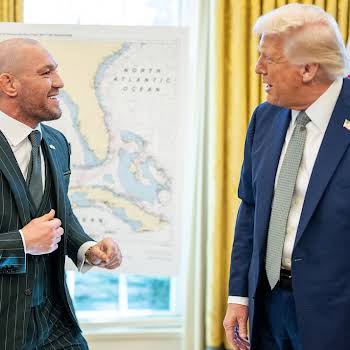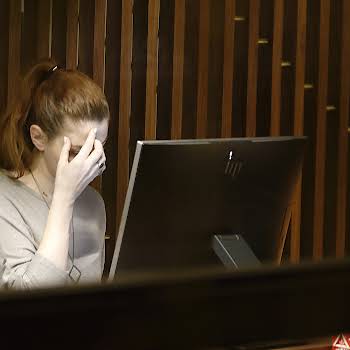
By Niamh Ennis
25th Mar 2024
25th Mar 2024
What happens when friendships change? Niamh Ennis explores the evolution of platonic relationships as we age.
Friendships change as we change. What we like changes over time and the same also applies to who we want to do life with. It’s not unusual that our needs and wants in our friendships will also require alteration to reflect these adjustments. However, we need to be well prepared for the fallout.
The ending or breakdown of any friendship can result in feelings of shame and disappointment, although it’s vital to recognise that such feelings are very common and quite normal. When a friendship ends, and especially if it wasn’t our choice, it’s inevitable that we will feel embarrassed and ashamed. We likely won’t want anyone to know that, for whatever reason, someone decided their life would be better without us in it. It can hurt deeply and our instinct is to hide that hurt in an attempt to deny its very existence.
The reality, however, is that as we move through life, certain friendships will naturally come and go. It’s part of living and rather than see it as a personal attack it would serve us much better to view it as evidence of our personal growth and evolution.
7 REASONS FRIENDSHIPS END:
- Life transitions: Significant life changes, such as moving to a new city, commencing a new job, starting a serious relationship, or having children, can really impact friendships. Changes in our circumstances or in our life priorities can really make it challenging to maintain the same level of connection with friends. This does not always lead to the end of a friendship, but it may lead to the suspension of one.
- Growing apart: We all naturally evolve and change over time, and sometimes these changes can lead to simply drifting apart from friends. Differences in our life goals, our shared interests and values can organically create distance between friends.
- Conflict: Disagreements and clashes are a normal part of any relationship, but if they’re not effectively resolved, they can strain or even break a friendship. Communication breakdowns, unresolved issues and disputes or incompatible personality traits can often contribute to the dissolution of a friendship.
- Betrayal or trust issues: Loyalty and reliability are fundamental in any relationship, including friendships. Betrayal, such as deceit, gossiping, falseness or breaking confidences, can severely damage trust and lead to the termination of a friendship. Similarly, unresolved trustworthiness or a lack of steadfastness can put an impossible strain on the bond between friends.
- Neglect and lack of effort: Like any important relationship, friendships require effort and investment from both parties in order to thrive and survive. If one or both friends fail to prioritise the relationship, totally neglect it, or consistently put in minimal effort, the friendship will deteriorate over time.
- Toxic dynamics: The truth is that some friendships can become unhealthy due to an increase in patterns of manipulation, control, or even abuse. In such cases, ending the friendship may be necessary for the well-being of those involved.
- External factors: Outside circumstances, such as distance, time limitations, or changes in social circles, can also influence the status of a friendship. Sometimes, logistical challenges or outside influences can quite simply make it difficult to maintain the friendship to the level it once was. Letting go, for now, may be inevitable.
It’s crucial, however, to note that the end of a friendship doesn’t necessarily reflect on the worth of either party involved.
Sometimes, friendships just run their course, and parting ways can be a mutual and healthy decision and we need to remind ourselves that it’s really ok to just let go. Other times, it’s an opportunity for growth and learning, allowing us to prioritise even healthier relationships in the future.
Here are some of the reasons why you might feel shame when a friendship ends:
Personal failure: You may think you weren’t good enough or didn’t try hard enough to maintain the relationship. You may see this as evidence that you just aren’t good enough and are certainly not loveable.
Social stigma: Society places value on having a large social circle or maintaining lifelong friendships; just consider how the number of ‘followers’ a person on social media is currently rewarded. When a friendship ends, the worry is that there will be judgment from others, leading to feelings of humiliation.
Vulnerability and rejection: The act of opening yourself or revealing your sensitive side involves real vulnerability and does not happen easily. Therefore, when a friendship ends, it can feel like this exposure was rejected or not reciprocated, leading to feelings of shame for having shared this part of ourselves.
Comparisons to others: Seeing others maintain seemingly strong friendships can really exacerbate your feelings of shame and disappointment, leaving you feeling embarrassed if your own friendships falter.
So, what should you do to try and navigate your way at the end of a friendship?
- Remember that it’s perfectly ok to grieve: Just like any other loss, the end of a friendship can be a grieving process. Give yourself permission to process your emotions rather than hiding them.
- Quality not quantity: Consider that it’s never the number of friends you have, but the true quality of those connections. Really focus on nurturing those that truly matter to you and that you hold dear.
- Be Compassionate: When it happens, treat yourself with genuine kindness and understanding. Recognise that friendships can be complex, that they need space to change, and that sometimes it’s nobody’s fault.
- Learn and grow: When a friendship ends make sure that you use this experience as a learning opportunity for self-reflection and growth. Understand just what went wrong and decide how it is you want to approach future friendships differently.
Friendships are fluid and while some friendships may fade or change as people grow and change, others may deepen and strengthen over time. By embracing the natural evolution of friendships and remaining open to welcoming in new experiences and connections, you can cultivate and nurture relationships that will enrich your life at all its different stages.
Personally, I love to think of the words of American Industrialist, Henry Ford, who described his best friend as “the one who brings out the best in me”.
Who is the person who brings out the best in you?
Niamh Ennis is a leading Change & Transformation Coach who through her private practice, workshops, programmes, and podcast has helped thousands of women get greater clarity and embrace change in their lives. She’s an accredited Personal, Leadership & Executive Coach and the Lead Coach in the IMAGE Business Club. Niamh is hosting her FREE Online Masterclass SHIFT HAPPENS on April 8. To reserve your seat just click here. Follow her on Instagram @1niamhennis.
Feature image via @justlikethatmax























